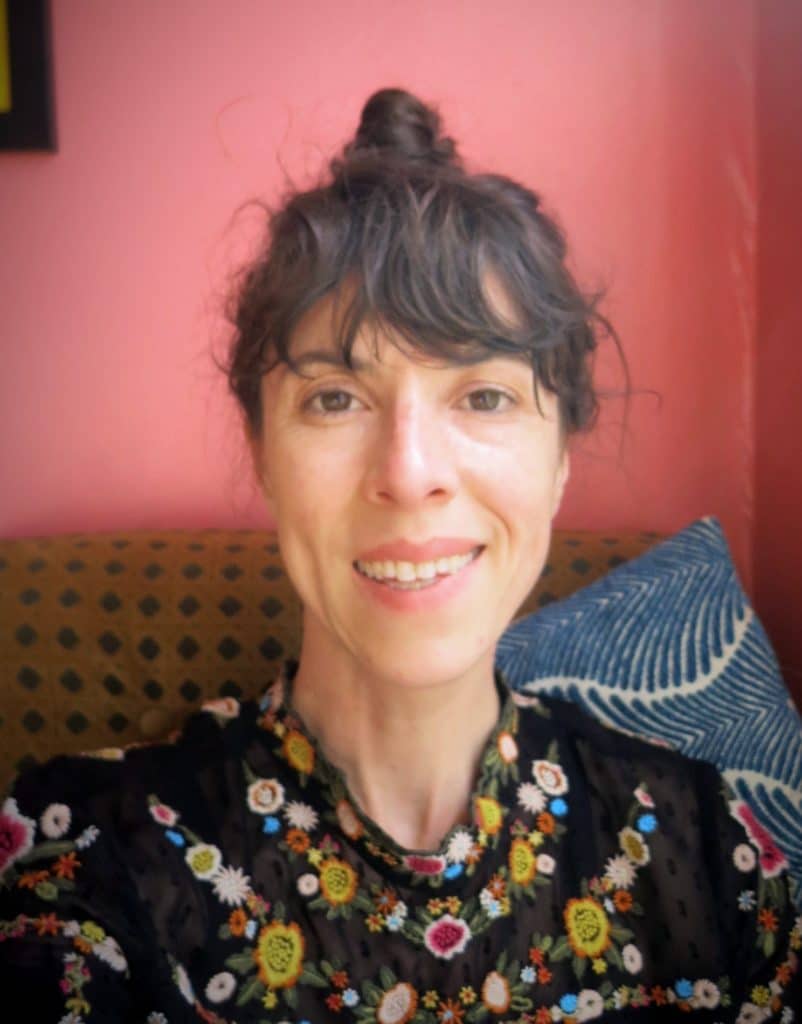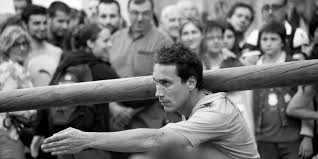We’re thrilled to introduce the 2022 Oregon Literary Fellowship recipients with individual features on our blog! Out-of-state judges spent several months evaluating the 400+ applications we received, and selected nine writers and two publishers to receive grants of $3,500 each. Literary Arts also awarded two Oregon Literary Career Fellowships of $10,000 each. The 2023 OLF applications will open in May 2022. The deadline to apply is Friday, August 5, 2022.

Jamie McPartland is a writer and editor. She studied Creative Writing at The New School in New York and her essays, short fiction and articles have been featured in publications such as Guernica Magazine, Washington Square Review, Litro, and the Rogue Valley Messenger.
Category: Laurell Swails and Donald Monroe Memorial Fellowship for Fiction
Pronouns: She/her
Q&A with Literary Arts
Who are some writers you look up to or who move you to write?
Some writers I admire include Deborah Levy, Elena Ferrante, Patricia Highsmith, Clarice Lispector, Haruki Murakami, Georges Simenon, Roberto Bolaño, Rabih Alammedine, and my mentor and friend, Frederic Tuten. I also want to mention George Saunders for his A Swim in a Pond in the Rain, a sort of writers’ handbook that has encouraged me to remain naive about my own characters and stories.
What are your sources of inspiration? Of joy?
I like to travel around cities by bike, and for the last 5 years this has been with my daughter in the kid seat behind me. There are all sorts of interesting details and moments of synchronicity and metaphor to observe, and my daughter makes her own commentary and sings as we go. In one city, before COVID, we came upon a performer, Joan Català, carry a telephone pole through the streets into a public square, where he performed his piece Pelat. Another time, in Marseille, we watched a woman who, walking along a jetty, without breaking her stride, cleanly dove into the Mediterranean Sea. Moments like these, shared with others, provide inspiration and joy.

How would you describe your creative process?
Certain places have a particular charge to them, and I become curious about them, but not in a way where I can satisfy my curiosity via research or just spending time there. Marseille is an example. There’s something I want to figure out about the mix of heritage and culture, and the beauty and creativity and tension in this city. So I try to explore this desire to know more by putting an imagined person there, and writing about what happens to them. Or I adopt a person I actually saw or met there and write about them. Maybe they are walking along and encounter someone who’s just like my brother, or they are having the worse day of their life when they come upon something totally unexpected, inviting escape. Ideally, I will be able to follow this person on the page without too many strict ideas about where they’re going and who they are going to end up being.
In practical terms, I can only set aside one or two hours at a time to write because I work and am a parent. This can be frustrating but also teaches me how to focus.
What is most exciting about receiving a fellowship?
The sense of validation is a boon, especially after working on manuscripts and stories for a decade now since studying in an MFA program. Deciding to take writing seriously means going on a long hike; the fellowship has come at the time when I could use the extra encouragement.
What are you currently working on?
I’m working on a novel, the same novel I’ve been working on for three or four years. It began during a period abroad–my mind was gathering all kinds of impressions while I was simultaneously absorbed in taking care of a child on the road. Over the last two years, these initial impressions solidified into a plot and seven characters I’ve gotten to know pretty well.
The novel follows a floundering woman who visits Marseille and is slapped by a stranger in the street. She is suddenly pulled out of her reality and travels backwards through all of her past lives. The novel is premised on a sort of reverse-reincarnation, meaning the characters move backwards through time to meet the original person their soul or spirit belonged to. So we wind up meeting all of these versions of the same person, or different people who share certain essential qualities. We see them struggling in their lives, blind to the fact that they’ve been struggling life after life in the same ways and that they will soon be torn from their realities, too. We travel all the way back to meet the sanctimonious man who has been pulling them out of their lives because he rejects their values. There will have to be confrontation, of course.
On a lighter note, I’m also working on a children’s picture book about a boy who begins to pull up tiles all around his town because he finds photographs hidden under the tiles, and these old photos turn out to tell a story about his community.
What has kept you writing through the pandemic? Has your process changed? Has the content changed?
I had to reprioritize and stop trying to plan ahead, just as a lot of people did. I hope I am a little bit wiser and that this is conveyed through my characters and their struggles. I’m not sure that my creative process has changed, but my level of presence has.
What advice do you have for future applicants?
I can just say that I presented the writing I’m currently working on, as imperfect as it might be, because it’s the project I care about. I think this might be true when anything goes well: our genuine absorption and fervor come through when we share work that is imperfect but it’s what we’re grappling with at that moment.
Any book (or movie, album, show, etc.) recommendations?
Some films–and a series–that have provoked new ways of seeing:
- Terence Malick’s A Hidden Life about Austrian farmer and conscientious WWII objector Franz Jägerstätter
- Benh Zeitlin’s Beasts of the Southern Wild
- Jul Maroh’s Blue is the Warmest Color, adapted by Abdellatif Kechiche
- Elena Ferrante’s My Brilliant Friend quartet, adapted by HBO
- Andre Aciman’s Call Me by Your Name, adapted by Luca Guadagnino

Excerpt from Dinkey Birds
August in Marseille. A tableland of terra cotta roofs and white plaster walls in the smudged palette of rust and sand, blades of graffiti broken into the folds of the buildings below. The sense of the sea nearby. The heat. The young of the city with their bright voices and music seem to buzz between high perches and hidden courtyards while the tireder bulk of city dwellers move behind lowered metal window grates, silent as cats.
Two women sit at a spartan rooftop bar—a dozen tables covered by sun-bleached red and blue paisley cloth, paper lanterns strung between potted palms, a mini fridge at the top of the plastered stairs—their voices joining the breezy tinkle of conversation there. The bar is called La Femme à Trois Jambes—The Three-Legged Woman. As if to give credence to the name, no men occupy the ragged wicker chairs under leaning table umbrellas.
“How’d you find this place?” Sadie asks. She’s the one with the lazy clothes, clumped bangs, battered flea-market clogs. The look of someone who has just got off an airplane or long-distance train, which she has.
“I know, it’s great,” Katrin answers. “Reminds me of Cairo a bit. The owner’s from there, or Lebanon or somewhere. She only hires women, they’re part of some kind of activism—female circumcision I think?—and they have good beer in bottles,” she laughs, “not typical in France, and cheap.” She cranes her neck, surely looking for the beer she’d ordered minutes before.
“So…” Sadie says, also surveying the roof for their drinks. The two hardly know each other and, exhausted and drinkless, she finds it hard to make conversation.
Judge’s Comments
“Jamie McPartland’s ultra-perceptive, surprising and rich prose paints the city of Marseille with delirious tactility in her writing sample, tracking the minute movements of her protagonist’s mind from thought to thought, and her body’s sensations and intuitions through spaces both foreign to her as an American, and yet eerily familiar. A reader hears McPartland’s dialogue as though in the room with her characters, and wonders over it as it resonates and beg further questions, gaining in empathy, curiosity, and mystery as the story progresses. We feel her characters’ desire for meaning, touch, comfort, and transcendence in every line of this story about escape and regression.”
– Sarah Gerard


